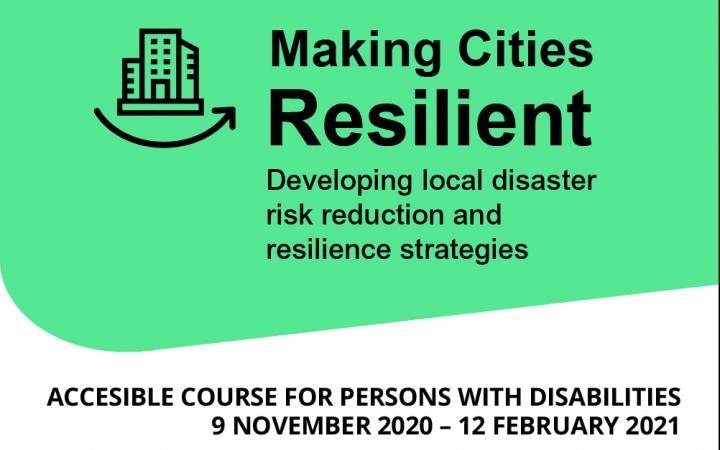Strengthening the capacities to design and implement plans and programmes that reduce disaster risk
September 2020 - Over the past 20 years, disasters have affected 4.4 billion people, caused USD 2 trillion of damage, and killed 1.3 million people. Disasters have affected people living in developing countries, particularly the most vulnerable communities within these countries.
In the context of increased urbanization, urban risk continues to rise. The vulnerability of cities to disasters is growing especially as poor people settle in high risk urban areas. In parallel, the planning and development of cities has given little consideration to the consequences of hazards such as earthquakes, hydro meteorological risks, and others. The implication of this reality is the need for countries to focus on creating a safer world for urban dwellers and developing a series of innovative approaches to build resilience.
UNITAR’s Division for People has teamed up with the United Nations Office for Disaster Risk Reduction (UNDRR) to create and offer a unique e-learning course on “Making Cities Resilient: Implementing Local Disaster Risk Reduction and Resilience strategies” (in English and Spanish), which targets mainly government officials but also a larger public, and which seeks to strengthen the capacities of institutions and individuals dealing with disaster risk reduction. At the same time, this online course aims to support UNDRR’s “Strategic Approach to Capacity Development for Implementation of the Sendai Framework for Disaster Risk Reduction – a vision of risk-informed sustainable development by 2030”.
A total number of 232 participants successfully participated in the summer and autumn 2020 editions of the course. And for the 2020-2021 winter edition, an update of the course aims at broadening the audience and participation by making the content accessible for persons with hearing and visual disabilities. As one the partnership’s main targets, it is essential to reach and ensure that people with disabilities have access to capacity-building and training opportunities on an equal basis with others, with the aim of empowering them to participate in the development of resilience action plans and programmes and by integrating their own priorities in these strategies.


